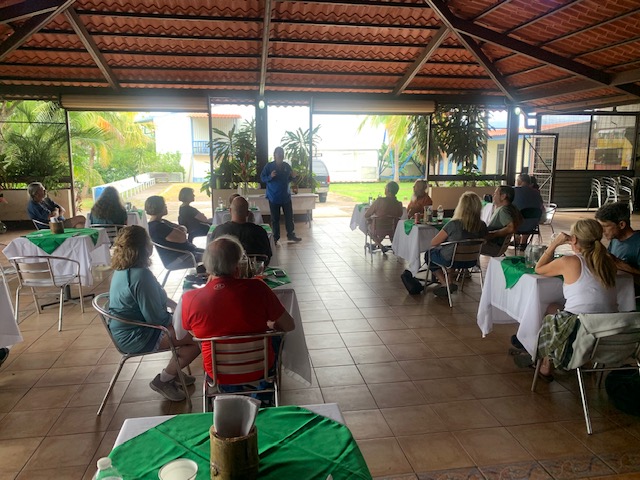Valuable tips for getting the best advice about living in Costa Rica
Because of Costa Rica’s popularity and business opportunities, a whole slew of enterprising foreigners has relocated here. Unfortunately, some of these people may lack qualifications and experience in their fields of endeavor.
Do not get me wrong! There are some highly qualified native English speakers here. Nevertheless, one should be extremely cautious when dealing with foreigners who consider themselves experts in Costa Rica. Just because a person was a professional in his home country or has gone through the process of moving here does NOT qualify him or her to be an expert. Furthermore, some foreigners think they know everything just because they have lived here for a short time.

I know people who move here, go into business, and miraculously become experts overnight. Costa Rica is indeed a magical country!
Many naive newcomers have been taken advantage of by other foreigners who consider themselves “experts.” So, be careful, do your due diligence, and do not leave your brain on the plane!
If you happen to come into contact with any English foreigners who offer services, do all of the following to assure you are getting the best advice and information for your money:
- Ask for references from other foreign residents who have used the person’s services. Don’t rely on the testimonials that appear on a person’s website. They may be slanted. If your expert will not give you any references, there is a possibility that you are being duped or sold second-rate services.. If a person is younger than retirement age, be extremely cautious.
- Check with the Association of Residents of Costa Rica (ARCR) to see if they are familiar with the person’s services.
- Enter the person’s name in a search engine such as Google to see what comes up before you spend your hard-earned money. There are companies you can pay to do a background check if you suspect something.
- Ask how long the person has lived in Costa Rica. If it has been for less than 10 years, be careful. It takes more than a year or two to know all the ropes and years to really understand this country. For example, many of the so-called relocation experts and entrepreneurs mean well but just don’t have enough experience under their belts to really help you.
- Most foreigners who move here and who want to make money either go into tourism or real estate. Many of these people are not old enough to qualify for a pension from their home country, so they have to find a way to generate an income. A lot of them work under the table because Costa Rica’s immigration enforcement is lax making it easy to set up shop here without having permission to work legally. Would you do business with a person living illegally in your home country?
- Find out about the person’s educational background was when living in their home country and if it involved any formal training in the Latin American culture, studies, or foreign investments. If someone was a plumber, teacher, welder or doctor, etc. prior to moving here, this is by no means a prerequisite for giving professional advice.
- Beware of colorful, well-designed websites built by so-called experts that express their admiration for the country in order to attract naive foreigners. Remember, anyone can build a website and say anything about themselves.
- Be cautious about publications that appear to be helpful on the surface but incessantly hype the services of the person(s) or organization behind them.
- Over the years I have run into so-called foreign experts who live comfortably in an upscale area, gated communities, or in gringo enclaves. The majority of their friends are other English speakers, so they have never really immersed themselves in the local culture. They are virtually foreigners living among other foreigners or “strangers in a strange land.” These people are isolated from the real Costa Rica. Few of them have any contact with Costa Ricans except for their maids, gardeners or other local workers. They rarely venture out of their safe environment to gather the necessary experience to confront real-life situations here.
- Be careful s of the information and advice on the so-called hobby websites and some expat groups. These include the growing number of sites put up by expatriates in Costa Rica to share their experiences. On the surface, these sites seem helpful but some of the people behind them are neophytes who have not lived here long enough to really be qualified to give good advice. There are videos posted on youtube and blogs portraying people’s experiences who have moved here. While they are entertaining, in some cases they shouldn’t be considered a reliable source of information. Unfortunately, the internet now gives every “Tom, Dick and Harry” a chance to be the star of a reality show or find their 15 minutes of fame.
- Most importantly, find out if the person is truly fluent in Spanish. There is no way to have expertise unless you can communicate with the locals and understand the nuances of the local humor, culture, and language. Beware: there are many foreigners who say they speak fluent Spanish with a vocabulary of only a couple of hundred words. Indeed, I have run into many of them in my 42 years here.
Bottom line: The right contacts, information, and advice can ultimately mean the difference between success and failure while living in Costa Rica.



